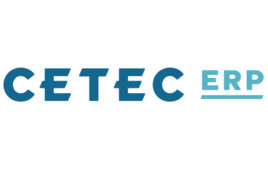Artificial intelligence raises exciting possibilities for healthcare, but are companies promising more than they can deliver?

[Original image from iStock]
But artificial intelligence’s potential also comes with an incredible level of hype.
“AI has the most transformative potential of anything I’ve seen in my life, and I graduated medical school 40 years ago. It’s the biggest thing I’ve ever seen by far,” prominent cardiologist and author Dr. Eric Topol told Medical Design & Outsourcing. “But it’s more in promise than it is in reality.”
Topol is a professor of molecular medicine and EVP at Scripps Research and the author of the new book Deep Medicine, which explores the enormous potential that artificial intelligence could have on medicine.
And although he’s optimistic that AI will improve healthcare in the future, that functionality is still years away; Topol suggests that companies investing in AI-involved products need to perform prospective research and appropriately manage the hype around their offerings.
“I think the hype is proportional to where AI could take us, but it hasn’t taken us anywhere substantially yet. It will, I think. I’m confident it will. But we don’t want to put the cart before the horse,” Topol explained.
For small medtech companies, managing the hype around AI may seem difficult, but successfully doing so can make your products stand out from the crowd.
“The first order of the day is to not over-claim, not over-promise, and just be truthful of what you can and cannot do. You know that AI isn’t perfect. Clinicians make errors, and the AI will make errors. That’s just the way it is. Be very open. Be transparent,” IDx CEO Dr. Michael Abramoff told us.
He should know. Last April, Abramoff’s little-known company, IDx, won FDA clearance for its IDx-DR system, an autonomous computer-vision software product designed to analyze retinal images and provide a clinical diagnosis for mild diabetic retinopathy.
The clearance marks the first time the FDA has approved an AI-based product that provides a diagnosis with no physician input or further examination required; it was a significant step forward for AI in medtech.
“I founded IDx with some colleagues in 2010 to address many problems in eye care and healthcare in general, primarily the increasing cost of healthcare,” Abramoff said. “I saw autonomous AI, meaning a system that makes a clinical decision or clinical recommendations, as the key.”
As the holder of both a specialized medical degree and a PhD in AI-based image analysis, Abramoff said that he’s always been fascinated by the combination of AI and medical care, but he’s worried that the hype could hurt people’s trust in the tech.
“As a physician, it’s so important that people trust it, that physicians trust it, that patients trust it. And what you don’t want to do is make all sorts of claims,” Abramoff cautioned. “You want to be careful not to make claims you cannot make real. I think, for me, the focus is on ‘let’s never over-promise.’ Let’s make sure what we say is true to the best of our knowledge. Let’s not over-claim, and as a field, not claim we do things we don’t do yet.”
The fear is a backlash akin to what was seen in the autonomous vehicle industry after the first fatal pedestrian crash a year ago during an Uber self-driving test in Phoenix. A similar scenario could unfold if medtech AI firms riding the wave of hype make promises they can’t deliver on, he added.
“We cannot have that. It’s so important for healthcare, which is too expensive, to become more affordable and to drive quality and accessibility,” Abramoff said. “And if you have backlash, God forbid, it wouldn’t be allowed anymore. That will just harm patients.”
In medtech, the backlash may already be underway, in the form of significantly increased scrutiny.
In late 2017, a STAT News report emerged suggesting that major AI-based player IBM Watson Health’s cancer product, Watson for Oncology, failed to effectively find the best treatment for cancer patients. Another report from STAT, released last July, suggested that Watson for Oncology often returned “multiple examples of unsafe and incorrect treatment recommendations.”
The reports were joined by the Wall Street Journal, which claimed last August that “Watson cancer applications have had a limited impact on patients,” that the “tools didn’t add much value” and that in some cases, “Watson wasn’t accurate.”
IBM media relations could not be immediately reached for comment, but the ensuing foofaraw saw the departure of Deborah DiSanzo as Watson Health GM, who moved to the strategy team for IBM Cognitive Solutions.
When asked whether he believed that Watson provided appropriate evidence to back up the functionality it promised, Topol said that the company relied too heavily on AI hype.
“Certainly not with Watson. That’s been a false start from the beginning, because they’ve been masters of marketing things that have not been accomplished. So they, unfortunately, set a bad precedent by being a front runner with a big profile and printing out a lot of things that were just pure hype,” Topol said.
But Topol said that he believes that other companies – such as IDx – have begun to produce research, set realistic expectations and deliver on promises that are establishing AI’s role in healthcare.
“I think that things are starting to get grounded. IDx is certainly one example. They performed a prospective clinical trial. They got FDA approval. It’s in use,” Topol said. “I do think that it’s on the right track. We need to do that a lot more.”
IDx isn’t an anomaly: Many other medtech firms have also realized the importance of avoiding the hype around AI.
“Where is it important to separate reality from hyperbole? At every possible opportunity. There is a lot of hyperbole,” HeartFlow chief medical officer Dr. Campbell Rogers told MDO.
HeartFlow’s tech uses advanced imaging to create an anatomic rendering of the coronary vasculature, applying known data about coronary physiology to better reveal underlying patient physiology, Rogers explained. The process relies on machine learning to help create high-quality renderings by analyzing a wealth of CT images. After analyzing the images, the software can then infer what the actual anatomic structure of a patient looks like based upon the previous data.
It’s a direct application of machine learning that’s helping to save lives, and one that will continue to improve over time, he said. The technology is also “incredibly facilitating” for patient care, Rogers added, despite fears that AI-based tech could remove the art of medicine from the practice.
“There’s just nothing that could be farther from the truth,” Rogers said. “I think of it much more as guiding the provider to the areas where he or she can provide the most good, the most wisdom.”
Topol agreed that AI has the potential to significantly improve the relationship between physicians and patients, but cautioned that companies need to increase their investments in research to spark future innovation.
“If you really believe in your algorithm, then you will want to do a prospective validation trial, and provide proof for the medical community. Because otherwise, this is not going to get legs.”








AI and Machine Learning are both based on “what was done last time”, and if there is not an adequate training as to what did NOT work then there may be a few incorrect calls made. As for the hype, that is how to raise funds and gain monetary support. It is the primary task of CEOs, and we must always be aware of that fact. It is Unfortunate but true.